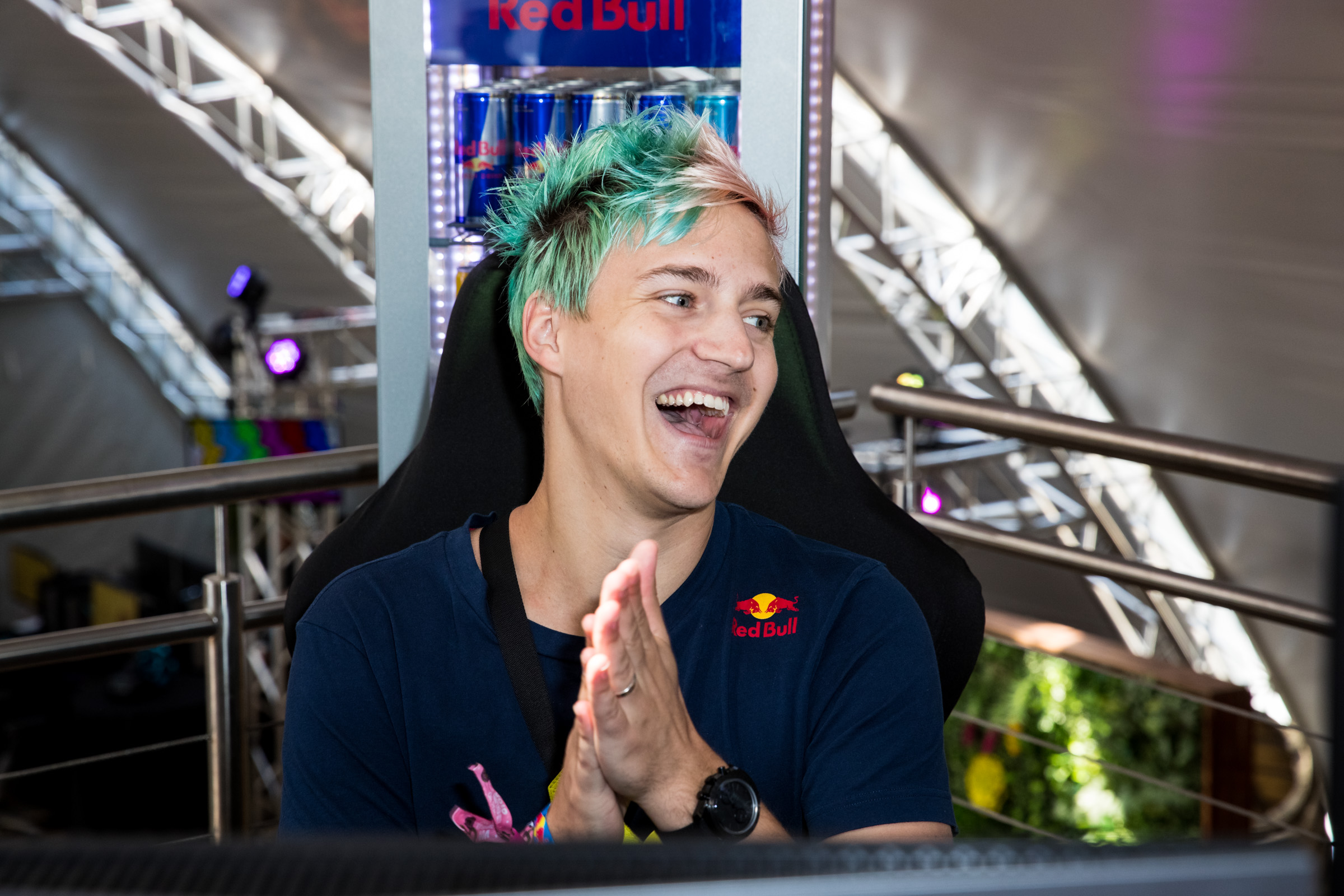Ninja still fears gossip over streaming with women
In a New York Times Magazine interview, the famous streamer revisited comments from 2018, and talked about his future.

Back in 2018, Tyler 'Ninja' Blevins said that he doesn't stream with women outside of group settings to avoid rumors and harassment—for any woman he might stream with, himself, and his family. Today, Ninja's views on the issue haven't changed. It's "astonishing" what people say to women online, he said in a new interview with The New York Times Magazine, and sees his policy as a way to avoid trouble, not a problem in itself.
"Accusations [of flirting or infidelity] are what made me say that about female gamers [in 2018]," said Ninja. "I was like, I’m going to do anything in my power to make sure that no one can even start a rumor or make YouTube clickbait videos: 'Ninja is playing with this person a lot lately. They’re flirting. Here’s a clip.' You know how to make that never happen? You don’t let it happen! That’s what was going through my head. I still stand by not having a lot of alone time with a woman, in general, if you are a married man. I mean, they could be your best friend, that’s totally cool. But if I randomly start playing with a woman no one knows, people are going to start talking. So if I am going to play with female gamers, I do it with a big group so it’s not that one-on-one interaction."
Back in 2018, Ninja's views on the consequences of pairing up with women on Twitch were much discussed. Many critics compared his rule to former US Vice President Mike Pence's rule that he never eats alone with a woman who isn't his wife, a rule which sets women apart as unequal, especially in political and professional contexts, where being barred from one-on-one interaction with powerful men is yet another unfair limitation. On Twitch, it could mean a self-reinforcing network of popular men who exclude women, if not entirely, at least in one significant way.
Others supported Ninja. Streamer Suto, for instance, confirmed that just having her stream hosted by Ninja resulted in "conspiracy theories'' about her intentions, and said she felt that his policy was about respect. That view was mirrored by another streamer, Valkyrae.
"It has NOTHING to do about being sexist," wrote Valkyrae at the time. "And it is not teaching kids to not play with women. It should only show others the importance of putting the health of your relationships first, over work."
Nothing about Ninja's position seems to have changed since then. When it comes to hanging out with women one-on-one on stream, "I don't have that luxury," he told The New York Times Magazine. That's as opposed to a regular Joe, "who can have a drink with his co-worker and no one gives a [expletive]."
Ninja also discussed other harassment and racism in online spaces. His suggestions for parents: Listen to what your kids are saying in videogames when they think no one can hear them, and talk to them about racism.
Keep up to date with the most important stories and the best deals, as picked by the PC Gamer team.
"If they're gaming and their first interaction with racism is one of their friends saying the N-word and they have no idea what it is—what if it was on my stream? Is it my job to have this conversation with this kid? No, because the first thing that’s going on in my head is, 'This kid is doing this on purpose to troll me,'" he said. "If someone says a racial slur on someone else's stream, it can potentially get that streamer banned. It’s awful, but that’s the first thing I think of."
Ninja once apologized for using the N-word on stream himself, after, in his words, he "fumbled" the lyrics to a song and "got tongue tied in the worst possible way." That was also back in 2018, a little before his initial comments about streaming with women.
Since then, when Ninja was already extraordinarily popular, he's remained one of streaming's biggest stars despite a move to Mixer and then back to Twitch after Mixer shut down. Lately, he's looking for ways to stream less and find other career avenues, including voice acting.
"I love doing impressions and voices," he told The New York Times Magazine. "I can quote every 'SpongeBob' episode."
You can read the full interview here.

Tyler grew up in Silicon Valley during the '80s and '90s, playing games like Zork and Arkanoid on early PCs. He was later captivated by Myst, SimCity, Civilization, Command & Conquer, all the shooters they call "boomer shooters" now, and PS1 classic Bushido Blade (that's right: he had Bleem!). Tyler joined PC Gamer in 2011, and today he's focused on the site's news coverage. His hobbies include amateur boxing and adding to his 1,200-plus hours in Rocket League.

